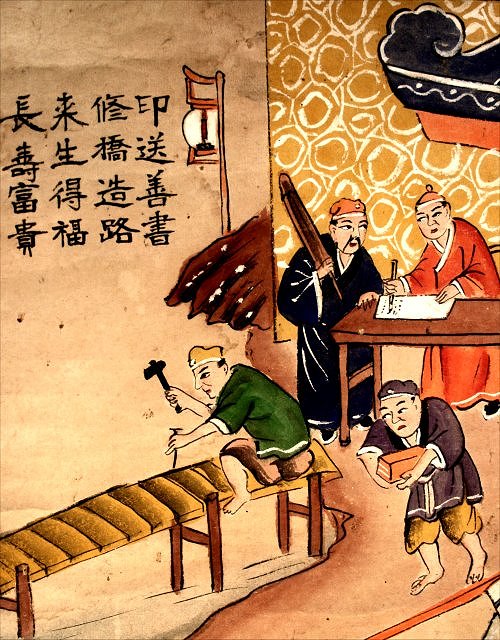
Translation (from right to left)
For printing and distributing books on goodness [i.e. sutras],
For repairing bridges and building roads,
One will receive blessings in the life to come –
Longevity and wealth.
Appearance in a Taiwanese visit to hell
For a description of printing ethical books to liberate the dead as depicted in a Taiwanese spiritual medium who had engaged in a series of hell tours between 1976 and 1979, see Voyages to hell, Chapter 20.While earning merit through destributing (literally) the "Good Book" might sound obvious, earning merit for road construction is not, but John Kieschnick writes that the two were in fact linked:
Given China's lengthy history of organized labor and unparalleled tradition of accumulating practical experience over vast stretches of time, it should not surprise us that Chinese constructed impressive bridges of various styles over all manner of rivers, ravines, and mountain passes in diverse regions throughout its history. What is surprising is the close connection between many of these bridges and the doctrines and practices of Buddhism. From at least the sixth century to the end of the Qing, monks played a prominent role in building and maintaining Chinese bridges. More generally, the pervasive Buddhist notion of religious merit was a key factor in the construction of any number of bridges -- structures that were essential for the transportation, commerce, and communication of the empire.
Kieschnick goes on to explain that good bridges were an expensive local necessity to ensure regional economic prosperity, and because Buddhist monks were specialists in fundraising, they were often encouraged and even ordered to undertake such projects by the local magistrates.

A second example of bridge maintenance from another hell scroll (E6).